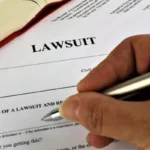When a Tenant fills out their application to lease, a Landlord believes that the information is accurate. Most usually do not think twice. However, they may find after the Tenant moves in, it contained false statements. If that is the case, a Landlord can take action to remove them. To learn about whether a Landlord can Evict a Tenant that lies on their application, contact the Law Office of Brian P. Kowal, PA at (954) 990-7552.
Does a Landlord have the right to Evict a Tenant that lies on their application?
Florida law requires the Landlord and Tenant show good faith at all stages of the lease. This also includes the time when the application is signed. While it may be uncomfortable for them to share unfavorable information to the Landlord, it is their obligation to do so. This generally refers to a Tenant’s criminal history, work experience, residential history or their financials. These are essential in determining if they will be approved. If a Landlord discovers that during the lease the Tenant was not forthcoming or lied on the application, they may proceed with eviction.
Unlike an Eviction for Non-payment of rent, the Landlord must serve the Tenant with a 7 Day Notice of Termination. The Notice must list the false statements listed in the application. The Landlord should allow the Tenant to address these circumstances. If there is no resolution after the 7 days, the Landlord can file the Eviction. If the Tenant responds that the application is accurate, the Landlord needs to be able to provide proof to the contrary. The Court will likely set the matter for a Final Hearing or Non-Jury Trial. It is important that a Landlord file any exhibits to refute the Tenant’s position. If the Court finds for the Landlord, the Tenant will be ordered to leave the property.
Why Should a Landlord be concerned if the application contains false information?
Some properties are in communities that are governed by Homeowners or Condominium Associations. This means that a Landlord is subject to their rules. Generally, all Tenants must be screened and approved by the Association before they move in. If the Landlord later discovers the information was false on the lease, they should contact the Association immediately. Failure to do so may cause them problems. An Association should have the right to know if the Tenant poses a threat to the Community or can harm other Tenants.
A Landlord may discover that the Tenant provided false information regarding their work history or current job. If they are not actually employed, the Landlord will be affected financially resulting in loss of rental income. Therefore, we recommend that Landlords run a background search before having a Tenant approved. This will help the Landlord verify the information on the application. Additionally, we strongly urge Landlords to contain a provision in the lease allowing them to Evict the Tenant if it is found that the Tenant lied.
If you have questions about whether a Landlord can evict a Tenant that lies on the application, contact the Law Office of Brian P. Kowal, PA at (954) 990-7552.






